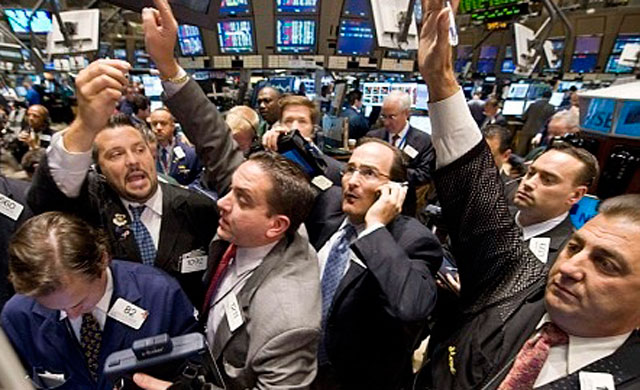Plagiarism is described in Wikipedia as the “wrongful appropriation” and “purloining and publication” of another author’s “language, thoughts, ideas, or expressions,” and the representation of them as one’s own original work.

Sadly the Internet has provided a platform for unscrupulous people to launch trading signal services, these people have little or no experience and their services should be avoided at all costs. Their plagiaristic process is simple: set up a website, copy content and ideas from legitimate competitors, provide bogus analysis, do some clever online marketing and voila! Unfortunately these people are so savvy with their marketing that it is difficult to ascertain immediately if their system is legitimate.
7 ways to Spot Plagiarism and Scammers
Before subscribing to any trading signal service, make sure the published content is from a reputable company or individual. Here are 7signs to look out for:
1. Website
Check the domain name, do they have a proper named website address or is it a free website template? If it’s a free website template, like Google blogspot or weebly, be cautious. A serious professional business would never use a free website template.
Do you know how long the website has existed – is it a new service or an established one? Scammers don’t stay around for long, if the website has suddenly appeared and is new, be cautious.
2. Who is behind the website?
Any reputable website will have the name of the analyst or trader providing the trading alerts. By name I mean their full name including their first and last name. If there is no name or just the first name, be cautious. If a full name is supplied, check their credentials, does the person have a profile on LinkedIn? This is a good place to find out about the person’s past experience and qualifications and to measure their integrity. If the person has no LinkedIn profile, be cautious.
3. Authority
Has the person appeared on financial TV? Do they write regularly for financial websites or do they speak at trading seminars and events? Is the person a member of any professional organisation like the Society of Technical Analysts? A quick Google search using their name will reveal if they are well-known and reputable and in particular if the person has any authority in the field of trading. If you don’t find anything relevant, be cautious.
4. Contact details
They should supply a contact email address, not a personal one but a corporate email with the website domain name in it. A published telephone number is a plus, it means the person is happy to speak with you if necessary. If no telephone number is available, be cautious.
5. Trading performance
If the trading performance is too good to be true, it’s probably not true. In this case be very cautious. Websites that claim large monthly profits with little or no drawdown are seriously misleading investors. Chances are you won’t replicate their performance and you will probably lose money. For example making 400 points per month is equivalent to turning £1,000 into £3.2 million in just two years (assuming someone trades 1 FTSE 100 contract per £1,000 in the account). This is unrealistic. Some websites use “a good run” of a few months to annualise the result so that they look good, but the truth is a high-number performance is misleading. It’s the same scenario for websites that show profits month-after-month without any negative months whatsoever. This is unrealistic and not based on truth and you should be very cautious.
6. Method of payment
If the website does not accept well known payment methods like Paypal or Worldpay it’s probably because they have a bad reputation and have been barred from having an account, be very cautious in this case. Or it could be that they simply want to avoid refunds. Please note and remember that credit card companies provide some protection against fraud, they can often recover payments and refund your money from the vendors account. It is always preferable to use a debit/credit card for online payments.
7. Other things to consider
A measure of healthy skepticism should always be applied regarding claims made on the internet. Be cautious of the following signs, they are not a clear-cut indication of a person’s integrity:
Appearing at the top of Google does not mean the website provides a good service. Any website that has been optimised for search engines can rank high on Google.
Do not choose a provider simply because they have a large number of Twitter followers or Facebook likes. It is very easy to buy followers and there are many social media tools designed to increase the number of followers, in most case those followers are not real followers or real people.
Money back guarantees are a plus but if the website is run by a scammer chances are you won’t get your money back. Take these claims with a pinch of salt!
I have written this article because I have seen first-hand the tricks unscrupulous people play with other peoples hard work and ideas. For some it’s because they want to create something they are incapable of doing themselves and pass it off as their own. This will not gain any long-term respect nor garner success and they usually disappear as fast as they appeared! So always be cautious.
As a professional trader I have studied my market and challenged my boundaries, which has enabled me to grow and learn and often the hard way! All traders must go through this to find success and if you are looking to learn more about trading from a reliable service run by a professional trader with integrity and experience then visit my website.
Thierry Laduguie is FTSE 100 Trading Strategist at www.e-yield.com

 Hot Features
Hot Features












